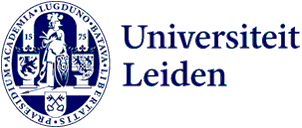Lecture
Philosophy/Japan Studies: Befriending Things on a Field of Energies
- Date
- Thursday 25 April 2024
- Time
- Serie
- Leiden Lecture Series in Japanese Studies
- Address
-
Lipsius
Cleveringaplaats 1
2311 BD Leiden - Room
- 0.02
The Leiden University Centre for Intercultural Philosophy, The Centre for Continental Philosophy and Japan Studies are proud to announce a lecture by Graham Parkes, comparative philosopher and Professorial Research Fellow at the University of Vienna. He is known for his works on environmental philosophy, Nietzsche, Heidegger, and Asian philosophies. All are welcome to join us for this lecture!
Befriending Things on a Field of Energies (with Zen Master Dōgen and Friedrich Nietzsche)
A major factor behind the current ecological crisis is our dysfunctional relationship with the things we deal with in our everyday lives. This pathology derives mainly from our our utilitarian perspective, through which we see things as mere means to our ends, and more broadly from a sense that things configurations of ‘inanimate’ matter. But this worldview is remarkably recent and quite parochial, as we realise when we consider the East-Asian philosophical tradition with its idea of the world as a field of qi energies. Over the course of fifteen centuries, Confucian, Daoist, Buddhist and Neo-Confucian thinkers developed a sophisticated account of the ways in which humans and things share a common nature, culminating in the ideas and practice of Zen Master Dōgen. A comparison with corresponding ideas in Nietzsche (representing a significant side-current in Western thinking) suggests a more general validity. The adoption of different ways of thinking about and interacting with things can enrich our experience—and reduce damage to the natural world on which we depend for our existence.

About the speaker
A native of Glasgow, Graham Parkes has taught philosophy at universities in the United States, Europe, and East Asia, and is now Professorial Research Fellow at the University of Vienna. His main interests are in Continental European, Chinese, and Japanese philosophies, aesthetics and philosophy of art, and environmental philosophies.
Among his books and translations are Heidegger and Asian Thought (1987), The Self-Overcoming of Nihilism by Nishitani Keiji (1990), Nietzsche and Asian Thought (1991), Composing the Soul: Reaches of Nietzsche’s Psychology (1994), Heidegger's Hidden Sources: East-Asian Influences on His Work by Reinhard May, Reading Zen in the Rocks: The Japanese Dry Landscape Garden by François Berthier (2000), Thus Spoke Zarathustra by Friedrich Nietzsche (2005), and How to Think about the Climate Crisis: A Philosophical Guide to Saner Ways of Living (2021). He has also published over 120 chapters in books and journal articles on his topics of interest.
